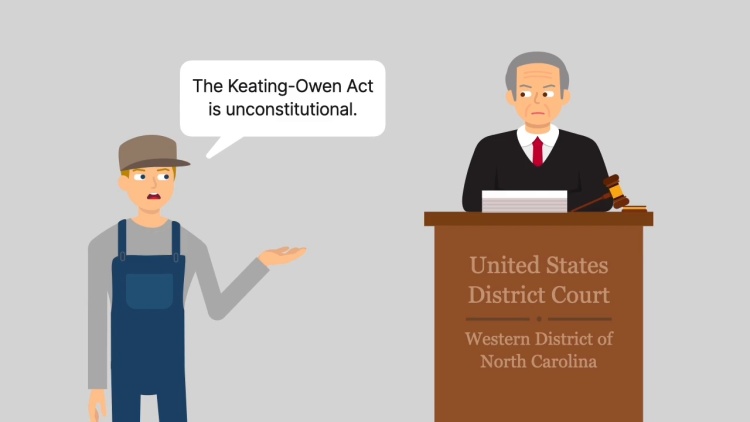Hammer v. Dagenhart
United States Supreme Court
247 U.S. 251, 38 S. Ct. 529, 62 L. Ed. 1101 (1918)
- Written by Megan Petersen, JD
Facts
In 1916, in response to increasing concerns over child-labor conditions in mills and factories, Congress passed the Keating-Owen Act (the act), which prohibited goods made by children under a certain age from being sold in interstate commerce. Dagenhart (plaintiff) brought suit on behalf of himself and his two sons, who were minor children employed in a cotton mill in North Carolina, against Hammer (defendant), a United States attorney, alleging that the act was an unconstitutional exercise of Congress’s Commerce Clause Power. The District Court for the Western District of North Carolina held that Congress acted unconstitutionally in attempting to regulate a purely local matter. Both Hammer and the United States appealed to the United States Supreme Court.
Rule of Law
Issue
Holding and Reasoning (Day, J.)
Dissent (Holmes, J.)
What to do next…
Here's why 907,000 law students have relied on our case briefs:
- Written by law professors and practitioners, not other law students. 47,100 briefs, keyed to 996 casebooks. Top-notch customer support.
- The right amount of information, includes the facts, issues, rule of law, holding and reasoning, and any concurrences and dissents.
- Access in your classes, works on your mobile and tablet. Massive library of related video lessons and high quality multiple-choice questions.
- Easy to use, uniform format for every case brief. Written in plain English, not in legalese. Our briefs summarize and simplify; they don’t just repeat the court’s language.





